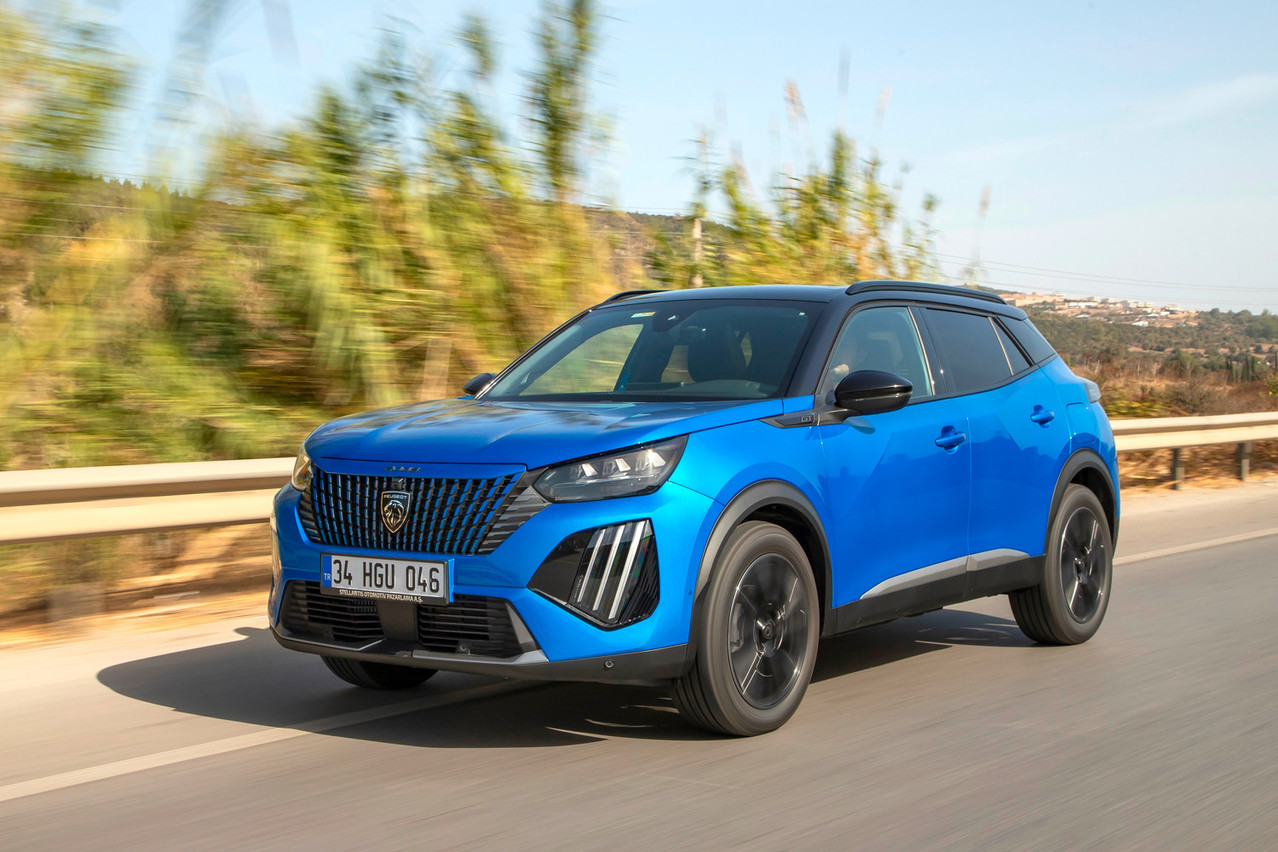In the final quarter of 2024, 10,745 cars were newly registered in Luxembourg, a figure that was virtually unchanged from the third quarter (10,805 cars). Over the year as a whole, 46,635 vehicles were registered, down 5% on 2023.
Despite a good start to the year, boosted in particular by the Autofestival, sales slowed in subsequent quarters. The sector is showing signs of running out of steam, although registrations are still higher than in 2022.
This trend can also be seen in neighbouring countries. In France, registrations of new private cars fell by 3.2%. In Belgium, the fall was 6%. In Germany, forecasts anticipate a slight fall of 0.7%, much less pronounced than in Luxembourg.
Volkswagen remains the brand with the most new car registrations in Luxembourg in the last quarter of 2024. The ranking of the ten best-selling brands remains broadly unchanged from the third quarter. However, Volvo fell back three places, while Tesla and Peugeot each moved up two places.
While Peugeot managed to top the best-seller chart with its 2008, Volkswagen took four places in the top 10 with its Golf, Tiguan, Polo and Caddy. Peugeot has a second model in the ranking: the 208. Tesla's Y and 3 models are also in the top 10. Renault and Skoda each put one of their models in the ranking, the Clio and the Kodiaq respectively.
This quarter, hybrid cars came out on top, accounting for a third of sales. This was followed by 100% electric cars with 28.9% and petrol cars with 26.6%. Far behind, diesel cars accounted for just 11% of sales.
Looking at 2024 as a whole, 100% electric cars gained 8 percentage points. The best-selling car brands stand out for their continuing popularity in Luxembourg, with Volkswagen in the lead, closely followed by BMW and Audi. Skoda and Mercedes-Benz completed the top 5, demonstrating the dominance of German manufacturers in the market.
Although diesel cars are losing ground in terms of registrations, they still account for more than a third of all cars on the road. Petrol is still particularly popular with private drivers in Luxembourg, with almost one car in two being a petrol car.
Where will electric cars be after 2024?
Luxembourg's car fleet is gradually becoming more electric. However, these figures must be treated with caution. Only 7% of cars are 100% electric, while 20% are hybrid or partially electric. This is a small increase on last year, when hybrids accounted for just 16% of the total fleet.
In her answer to a parliamentary question from MP (Pirate party), the mobility minister (DP) detailed the differences between the fleets owned by individuals and those owned by legal entities: "Electric cars are increasingly being chosen for company cars, which would be due in particular to the benefit in kind, which is particularly attractive for fully electric cars." In December, fully electric cars accounted for 18.3% of the fleet of legal entities, compared with just over 4% for individuals.
Legal entities still prefer diesel engines, which account for 34.32% of their fleet, although this figure is down on previous years. They are also opting for hybrid vehicles, particularly rechargeable hybrids, which account for 10.16%, reflecting a gradual transition towards more environmentally-friendly engines.
Individuals, meanwhile, show a clear preference for petrol engines, which account for 47.12% of the total, followed by conventional hybrids at 7.72%. The proportion of electric vehicles remains modest. When questioned, the Ministry for the Environment, Climate and Biodiversity stated: "If the percentages observed are lower for individuals than for corporate bodies, this can be explained in part by the growing popularity of private finance leasing".
Are the National Energy and Climate Plan (PNEC)’s still achievable? Backes said: "The objectives of the PNEC are certainly ambitious, but the government intends to achieve them. The reform of the tax regime for the benefit in kind of company cars, applicable from1 January 2025, and the decision by the cabinet on 29 November 2024 to extend the advantageous rates of 0.5%-0.6% for [fully electric vehicles] should help to bring us closer to this objective.”
The Ministry of the Environment stated: "The government has strengthened the mechanisms and incentives designed to ensure that electric vehicles remain in the Luxembourg car fleet over the long term. This includes support for resale and second use, as well as the extension of the minimum ownership period to three years for new vehicles and two years for used vehicles that have benefited from a premium."
Government incentives have been stepped up in recent years, notably through subsidy programmes and tax breaks.
The Ministry of the Environment added: "The electrification of the Luxembourg car fleet is not simply the result of the financial aid allocated for the acquisition of electric vehicles. It is the result of the implementation of a wide range of measures, including the establishment and operation of a basic public charging infrastructure (Chargy), the promotion of the network of private charging points through financial aid and the introduction of minimum requirements as part of the regulations on the energy performance of buildings, the extensive electrification of public vehicle fleets, the introduction of additional promotional measures such as the ‘Stroum beweegt’ initiative, support for local authorities in setting up charging infrastructure, and the expansion of the Klima-Agence advisory service."
Read the original French-language version of this news report /
